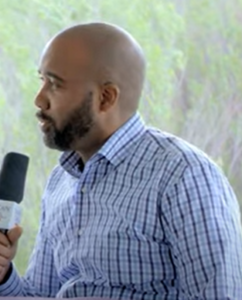Transferring the Family Home to Your Children

Transferring the Family Home to Your Children
An estate and tax planning specialist mentioned to us recently that one of the most common arguments among siblings is over the fate of the family home after the death of a parent. For both sentimental as well as financial reasons, the transfer of a residence can be an extremely sensitive issue. Then, too, there are tax consequences accompanying the sale of a home that merit some consideration in the process of putting together an estate plan.
In other words, there is no better time than now to begin thinking about the best way to transfer the family home to your children.
Where the trouble starts
Just as every family is different, so, too, are the issues that families face as they consider their options for passing on a cherished family home. Here, in a nutshell, are a few of the most common areas that should raise a red flag:
- All the children want a share of the home but have different financial needs, or there is the likelihood that a child will not (or cannot) keep up his or her share of the responsibilities of maintaining the home.
- The home is a major estate asset, and leaving the residence to one may make leaving equal bequests to all difficult.
- A contentious atmosphere between a current spouse and children from a prior marriage that makes it possible that the spouse’s continued residence in the family home might be challenged.
- Concerns about the marriages of one or more children and the possibility of the home passing out of the family through divorce.
Potential solutions
If there are long-standing animosities or unreasonable expectations among your children, finding a way to avoid future conflicts may be difficult. Still, you may want to consider taking some of the following steps:
Schedule a family meeting. Be open and direct about your intentions. At least you’ll know where everyone stands, and you may uncover some attitudes or emotions that you didn’t know existed.
Write a letter of instruction. Along the same lines, you can remove any uncertainty or doubt about your intentions if you leave behind a clear, unambiguous message about the reasons for your actions with regard to the family home.
Seek guidance as to the form of ownership that has the potential to minimize conflicts. There may be one form of shared ownership that’s better than another. A second spouse can be given lifetime use of the home, with eventual ownership passing to the children. Your attorney can counsel you as to the pros and cons of the various ownership options available.
Sell the home and turn the legacies into cash. This may be the least satisfactory solution and make no one happy. Still, if a family dispute is likely to lead to irreparable damage in the children’s relationships, it may be unavoidable.
The QPRT technique
Tax considerations need to play a role as you make your decisions about the transfer of the family home. The subject is too broad to cover in great depth, but when you know to whom you wish to transfer ownership of your home, but want to continue to live there yourself, there is one planning technique that has proved popular in recent years: Consider establishing a qualified personal residence trust (QPRT).
Here’s how it works: As owner of the house (the grantor), you set up a trust that will last for a specific term of years. (The longer the term, the more tax that can be saved, but if you die during the term, all savings are lost.)
You transfer the house to the trust, reserving the right to reside in it during the trust term. When the trust ends, ownership of the house can pass to your children or other beneficiaries. However, the agreement may stipulate that the grantor may continue to reside in the house by paying a fair rental or may purchase the house for its future fair market value.
From a tax perspective, the transfer of the residence to the trust is a taxable gift, but the amount of the gift is reduced by the value of your retained right to live in the house. The transfer of the house from the trust to your children is not taxable, and neither is any appreciation in the value of the house that occurred during the course of the trust.
But there is a capital gain kicker: When the children receive the house, they take the original owner’s basis and so will have a large built-in capital gain. Should they sell the house after the trust ends, they will owe substantial income tax on the capital gain. However, if they don’t plan an immediate sale of the home, and can meet all the requirements, the tax exclusion that allows up to $250,000 (marrieds filing jointly, $500,000) of capital gain from the sale of a principal residence may be available to cushion the blow.
We will be glad to explain in more detail the benefits of a QPRT, and whether placing your home in trust makes sense in your circumstances. Call upon us at any time.
Follow us on Facebook
Add These Leadership Skills for 2021
As we begin to exit the pandemic, are you looking to grow or enhance your leadership skills this year? If so, it is vital to have a plan as no one can expect to become a better leader just by showing up every day. Here are some important things to focus on in 2021. These leadership…
Workplace Accountability in Four Steps
Have you encountered a co-worker, boss or employee, who slacks off, unloads their work onto others, or takes credit for work and ideas that are not their own? Accountability in the workplace can often seem a bit too scarce, especially when the competitive drive kicks in. Or perhaps, someone that works hard, but never seems…
What’s Love Got to do with Leadership?
What is the most important attribute of a good leader? While it is difficult to single out one overarching attribute, according to leadership author, Lolly Daskal, “The single most important factor that differentiates a good leader from a great leader is LOVE.” Truly exceptional leaders know how to lead with love. One of the main…
Raamel Mitchell
Episode Transcript of: Raamel Mitchell Alan Olsen: I’m here today with Raamel Mitchell from Microsoft welcome. Raamel Mitchell: It’s great to be here with you Alan. Alan Olsen: So Raamel for the listeners, can you give the background of your work experiences start from college on and how you got to where you…




